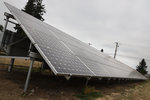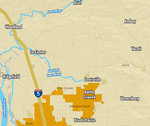

The United States Department of Agriculture (USDA) is hosting a seminar on its Rural Energy for America Program (REAP) on Wednesday, Aug. 14. The seminar will feature speakers from the USDA and Clark PUD to discuss the incentives of the REAP and how rural businesses can save money and help protect the environment through the program.
According to USDA officials, the purpose of REAP is to provide financial assistance in the form of grants and guaranteed loans to agricultural producers and rural small businesses. The program, a product of the 2008 Farm Bill, offers grants of up to 25% of eligible project costs for renewable energy systems and energy efficiency improvements.
The REAP Program is open to all agricultural producers, ranchers and small business owners in eligible rural areas such as La Center, Ridgefield and Hockinson. Along with the grant for 25% of project costs, REAP beneficiaries are eligible for a guaranteed loan for up to 75% of eligible project costs.
Help with application
Sunbridge Solar in Washougal assists local business owners write grant requests, which can be competitive. Owner of Sunbridge Solar Jordan Weisman’s goal is to help business owners understand the incentives and benefits of the program.
“The ideal REAP customer is a farmer but it could also be a rural small business that is not related at all to agriculture,” Weisman said. “We can’t just write a grant to cover all these costs if it’s powering their house and not their business.”
According to the USDA, eligible projects for REAP include the installation of renewable energy systems such as solar panels, wind farms and small hydro-electric projects on rural land, and energy efficiency improvements to a facility or building.
Projects such as residential improvements, lease payments or agricultural tillage equipment payments are ineligible for the program.
“I really would like to see more people in Clark County utilize this grant,” Bart Hansen of the Clark Public Utilities said. “It can make it very cost-effective for those folks in rural areas.”